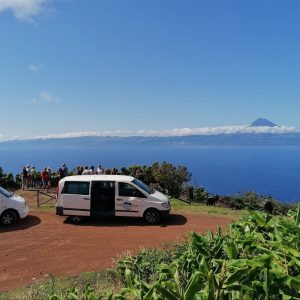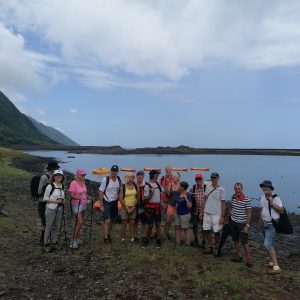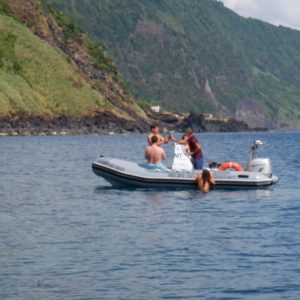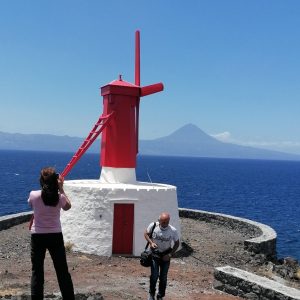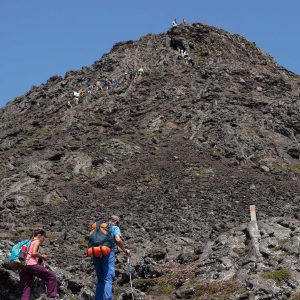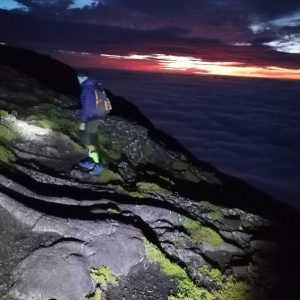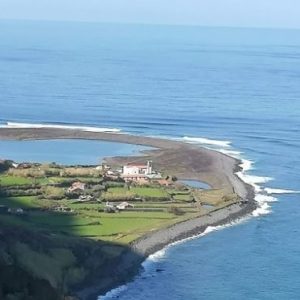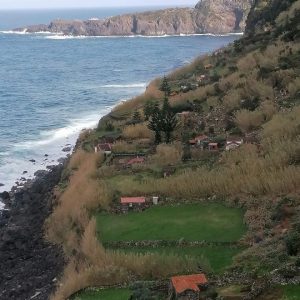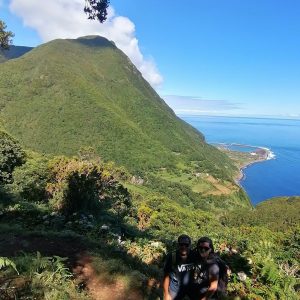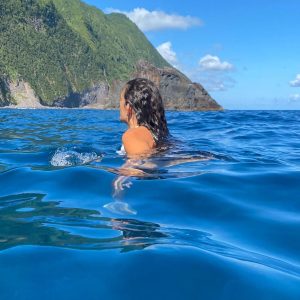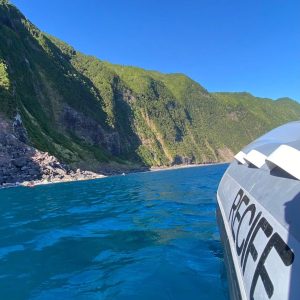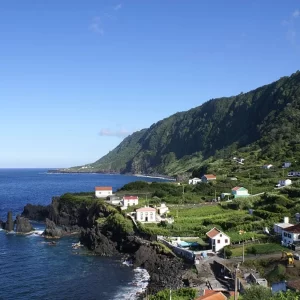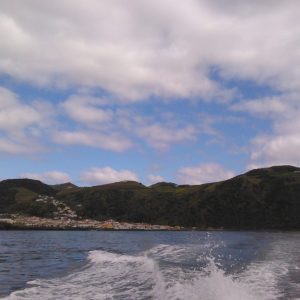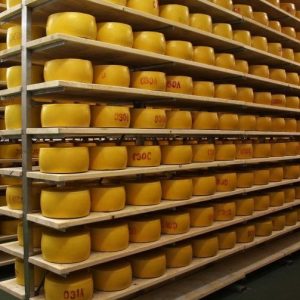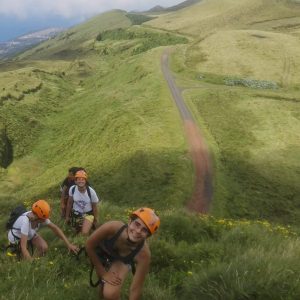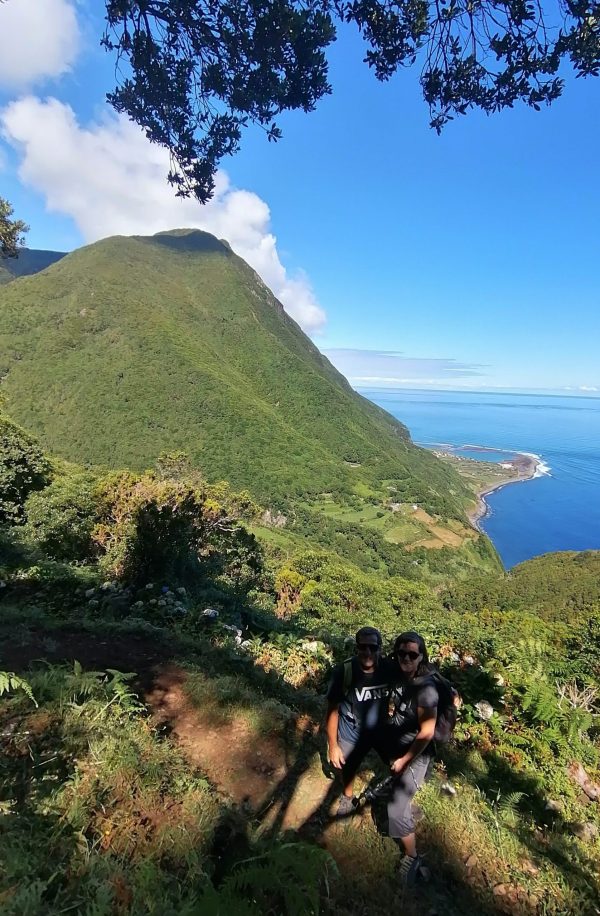Along the way, in descending phase, we will cross some fountains and a place from where it is possible to see the Caldeira de Santo Cristo. We continue to the fajã, passing by the Sanctuary of Senhor Santo Cristo and the Environmental Interpretation Center.
In this place, you can visit the Lagoa da Caldeira de Santo Cristo, an area classified as Protected Landscape and a place of cultural and scenic interest. Known mainly for the presence of clams, the lagoon is an important place for resident birds, as well as for some migratory species. With the increase in tourist activity in the region, the fajã was discovered by the water sports community and classified as a sanctuary for bodyboarding and surfing.
Here, you can take the opportunity to take a dip in the Lagoa (salt water) before lunch.
Lunch, to be arranged with your Guide, can be picnic (included), transported by us or, if you wish, we can make a reservation at the local restaurant (not included).
